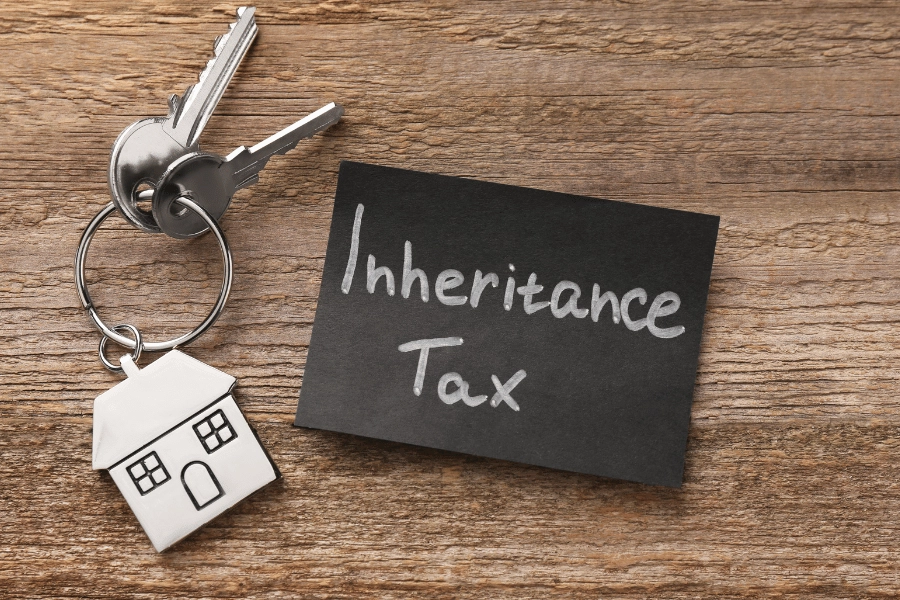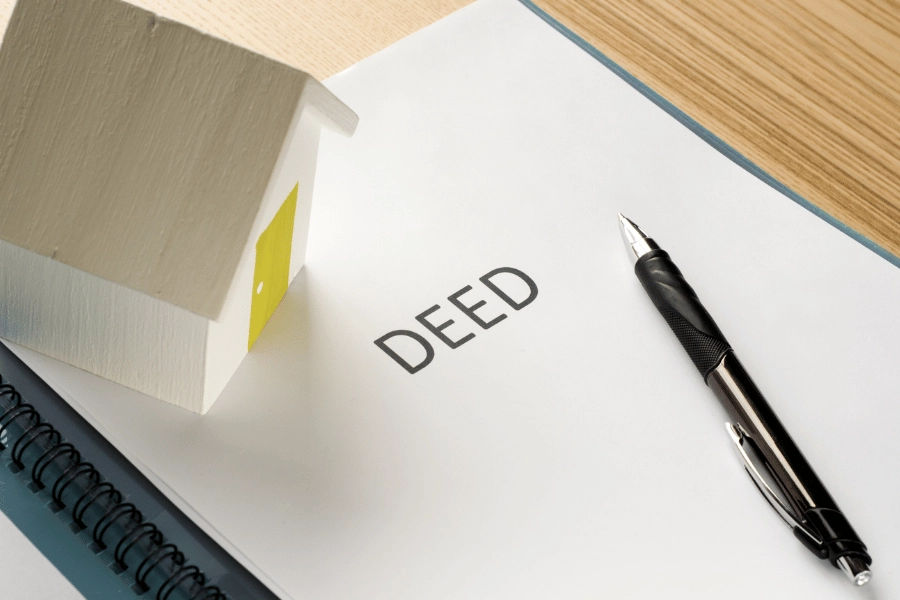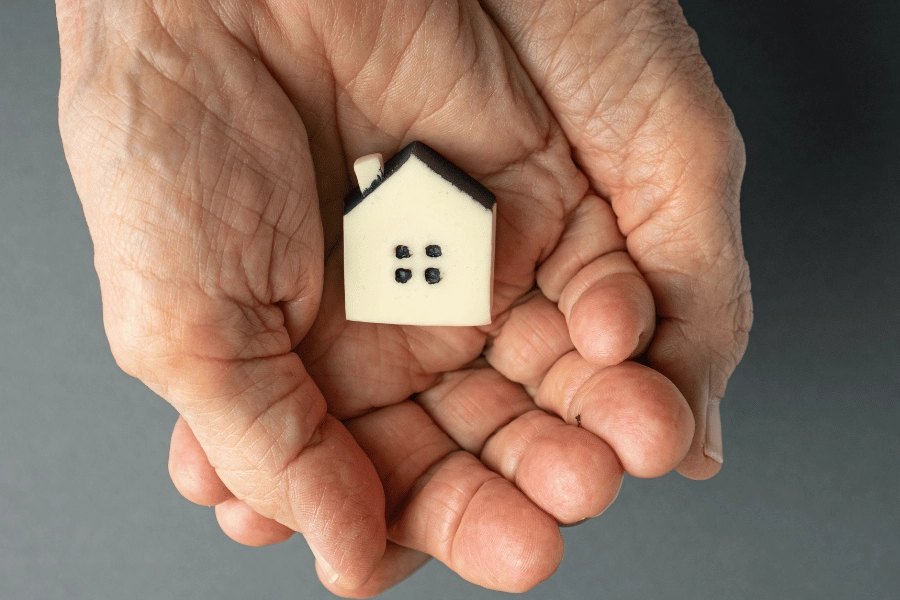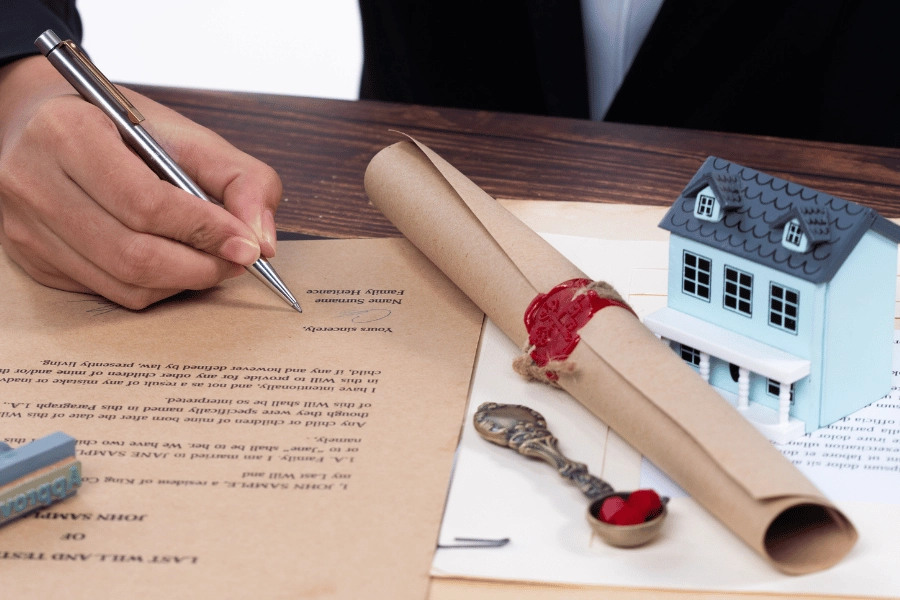What to Do When You Inherit a House
Are you inheriting a house and unsure where to begin? Here is everything you need to know when inheriting a home.
Inheriting a house can be a surprise, usually during an emotional time. Every inheritance situation is different, but understanding the overall process and everything that goes into it is helpful.
Inheriting a residential property like a house marks the end of a life and the beginning of deciding what to do with that property. There are many considerations in handling a house inheritance, like taxes and mortgages. This may seem like a lot, but once you understand your plan, it will improve this situation.
When you inherit a house, the first step is to create a short-term plan. You'll need to focus on maintaining the property and consider your long-term intentions for it. Having a clear plan will be beneficial in many ways, as real estate is a financial commitment similar to other types of assets.
If you have inherited a home through a will or as a trust beneficiary, continue reading to learn more about how to manage the house and the various aspects of owning an inherited property.
Here is what you should do when you inherit a house.
1. What Are My Options?
Knowing your options when you inherit a house is important, especially if the previous owner's death was very sudden or unexpected. However, everyone's situation is different, so below are some options to consider.
Sibling Buyout
Make sure you contact your family estate planner to ensure you are the sole inheritor before making any decisions. If the house were left to multiple people, you would have to agree about what would be done with the property or arrange a buyout.
Hold the Property and Rent it
If you do not want to live in the property you inherited and do not want to sell, you can choose to rent it out as a source of passive income. This can be a way to pay off the property mortgage or your own. Make sure you review local housing laws to make sure you are able to do so.
Live There
The house you inherit is your house, so you can choose to live there. It is important for those who are interested in living there to fully understand the mortgage status and everything that goes into having this property.
Sell the House
There are several reasons you might want to sell an inherited property. You may prefer cash, have too many co-inheritors, or find the property too much work to manage. Whatever your reason, it's important to contact a trustworthy real estate agent who can guide you through the entire process.

2. What's the Best Thing to Do?
Everyone's situation will be different when you inherit a house, so what happens next is all up to you. There are a couple of actions you can take when you inherit your house that you can look into to figure out the best plan of action.
- Call your lawyer or family estate planner
- Secure the property, even if you arent there
- Assess the condition of the property
- Transfer the utilities to your name to avoid late fees and shut off
- Pay any past-due taxes or bills
- Get an appraisal
- Understand the mortgage
- Check the homeowner's insurance policy
Once you inherit a house, you may feel overwhelmed with all the new responsibilities, but it does not have to feel overwhelming. Talk with professionals or loved ones with you to help you through this process.
3. What Cost Comes With Inheriting a House?
Many people often wonder about money. Inheriting a house may not be financially beneficial. Homeownership entails various costs, so it is crucial to understand the financial obligations that will accompany the property.

Probate
Depending on how the deceased split the will, their assets may have to go through a process called probate to determine the rightful heirs. A probate tax will apply, which varies by state.
Renovations
If you want to sell or live in the house, you might have to update or repair it. Sometimes, you can sell the property without making repairs, but most of the time, you will need to do so beforehand.
Utilities
Once you decide you are the owner, there may be utilities you have to pay. Ensure you collect any previous bills and information to cancel any utilities you do not need.
Removal of Possessions
You can remove possessions in different ways. You could have a sale, donate, store, or even throw them away. Whatever you decide is up to you.
Insurance
If you are the legal representative of the estate, any insurance payments that have fallen due are now your responsibility. You should contact the current insurance agent to see if there are any changes to the policy. You do not want to leave it uninsured.
Maintenance
Like other properties, maintaining a home has costs. Upkeep, landscaping, and keeping the major systems checked and updated are just a few of the things you will need to do.
Property Taxes
Inheriting a house can affect your taxes, and going too long without paying property taxes can put you at risk of losing the house, so make sure you keep up with them.
4. Does Inheriting a House Affect my Taxes?
There are a few ways that inheriting a property can affect your taxes, whether you decide to live in it, sell it, or even rent it out. Many of these vary depending on where the property is and what you want to do with it. Here are some ways taxes can be affected.

State Inheritance Tax
Some states do not charge an estate or inheritance tax, but if the property is in a state that does, you will be charged at the time of inheritance. This tax is typically based on the value of the house, and they generally give you at least eight months to file a return.
Federal Estate Tax
The IRS sets a threshold for this tax on estate, so if your property is part of that, you will be subject to the federal estate tax. No matter what the house is worth, it is recommended to consult with a tax advisor to determine your tax liability.
Local Property Tax
Based on the tax-assessed value of the property you inherit, this tax amount is set by the local municipality in which the house is located. Property tax rates vary, so make sure you calculate that. If taxes were included in the mortgage, they are up to date, and if the home was paid off, you will need to contact the local tax office.
Capital Gains Tax
This tax is only paid if you want to sell the property and is based on the amount of the asset appreciated during your ownership. When you inherit a property, the IRS will apply a "step up in basis," setting the updated value of the property upon inheritance. If the value increases before you sell, you owe capital gains on that appreciation.
5. What if There is a Lien?
A lien is a debt tied to a property that enables creditors to get ownership if the debt remains unpaid. If you are bankrupt and inherit a property, the creditors can also place a lien on it.
If you are trying to pay off a lien, you have a couple of options. You can use your funds to pay it off, and that is the easiest way to do it. You can also negotiate with the creditors for a settlement, which will help you pay off the debt at a reduced amount. You can also take out a loan to pay it, refinance the home by taking out a mortgage, or even sell the house.
6. How To Add a Name to the Deed?
Once the probate process is done, the estate's executor can help the beneficiary with gaining full ownership of the house. This will mean you can create a new deed that has you as the owner. Here are the steps that you will need to do to add your name to the deed:
- Get a copy of the probated will
- Confirm the nature of property ownership
- Obtain a death certificate to prove that the original owner is deceased
- Draft a new deed naming you as the owner

7. How to Sell Inherited Property?
It won't be easy to sell an inherited home, especially if it has personal significance. However, in some cases, selling might be better in the long run, especially if you share it with someone else, it is far away, or you can't afford to keep the home.
There is no time limit you have to wait to sell; once the probate process is done, you can sell it anytime. If you are planning on selling an inherited property, here are some ways you can prepare for the home sale:
- Continuing necessary payments while the home is still in your name
- Checking the titles and deeds for the property
- Cleaning the house and removing all personal belongings
- Hiring a real estate agent to help you sell
Methodology
We created this guide using information from various sources and our data on what to do when you inherit a house.
We used the following sources to gather most of our information on everything you need to know about inheriting a house.
FAQS
What is the first thing you do when you inherit a house?
The first thing you should do when you inherit a house is determine whether there is a mortgage on it. If there is, you will need to contact the loan servicer.
What are the disadvantages of inheriting a house?
Beneficiaries may need to pay a lot of money for ongoing expenses like property taxes, utilities, upkeep, and insurance. There are some cons and some pros as well.
Do I have to refinance if I inherit a house?
If you inherit a house with a mortgage, you can sell it or assume the mortgage. You can determine the equity and cost before making this decision, or you might want to consider refinancing to lower the interest rate or monthly mortgage payments.
Do I need to report the inheritance to the IRS?
If you received a gift or inheritance, you do not include it in your income. If later on that inheritance produced an income, you might need to pay tax on that income in the future.

What to Do When You Inherit a House - The Bottom Line
Inheriting a house can be a financial whirlwind at once. However, on the plus side, many great things can come with inheriting a house. If you have inherited a home, consider consulting a financial advisor to help you make the best decision.
Before you make a decision, you should consider your financial situation, goals, and needs. This can be a blessing, but it is also a responsibility. If you are fortunate to inherit a property, make sure to take the time to understand the options for you financially and emotionally.
Once you understand everything that goes into inheriting a house, you can decide what option is best for you. Inheriting a property has many pros and some cons, so make sure you do not make an emotional decision and take the time to know everything that goes into inheriting a house.
If you are considering moving or selling, contact us or visit our website. Our team at Raleigh Realty is here to help you with any home buying or selling needs.


